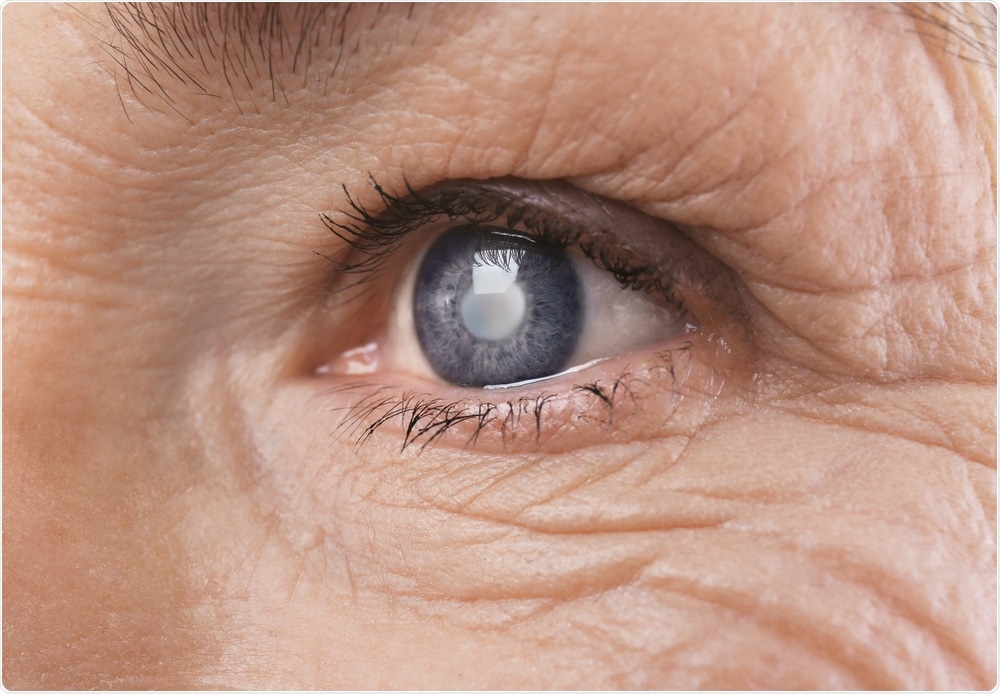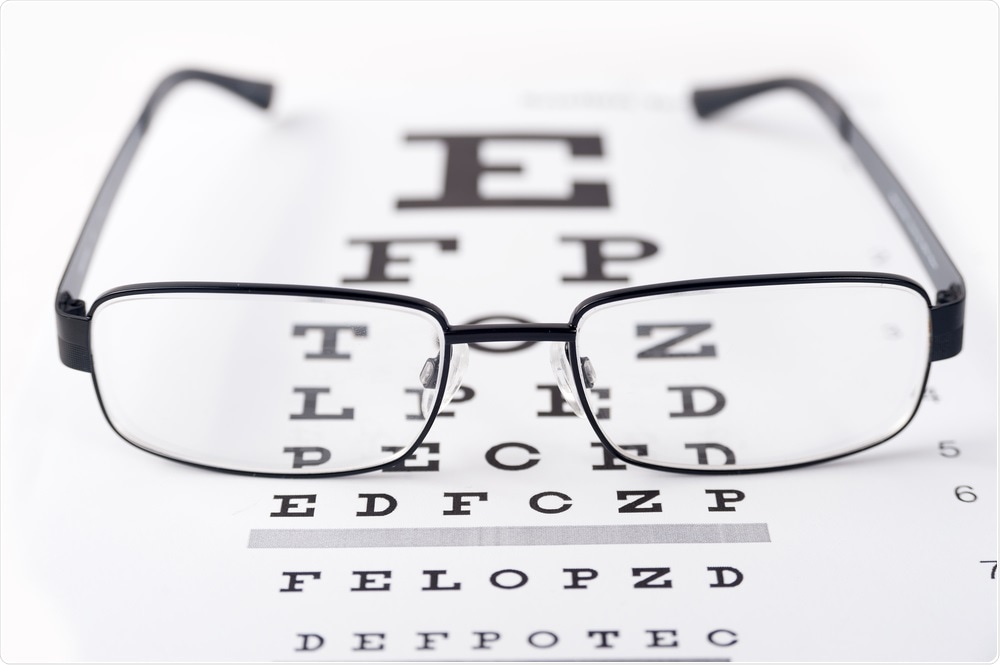
Your Vision Matters: How to Protect Your Eyesight
 Thought LeadersDr. Neil EbenezerDirector of Research and PolicyFight for Sight
Thought LeadersDr. Neil EbenezerDirector of Research and PolicyFight for SightAn interview with Dr. Neil Ebenezer from the charity Fight for Sight, discussing the importance of getting regular check ups and why research is still desperately needed for many ophthalmic conditions.
What are the most common causes of vision loss in the developed world?
There are currently over two million people with sight loss in the UK. By far the main causes of sight loss are age-related macular degeneration (AMD), which affects around 600,000 people, glaucoma, which affects around half a million and cataracts, which affects approximately half a million people.
 Cataracts. Image Credit: Africa Studio / Shutterstock
Cataracts. Image Credit: Africa Studio / ShutterstockWhile there is a lot of research in the areas of AMD and glaucoma, much more work needs to be done to tackle these conditions, which is why investment in eye research is so important.
We now have a simple operation that can address cataracts, a condition that previously caused significant sight loss in the UK. This clearly demonstrates that research breakthroughs are achievable and can have a huge impact.
How can people reduce their risk of vision loss?
There are a number of steps people can take to look after their eyes, although unfortunately, it isn’t possible to prevent all types of eye disease.
The most important thing people can do is have eye tests every two years – or more frequently if you’ve been advised to do so. This helps pick up on the early signs of any problems that can then be treated at an early stage.
Also, know your own family history; for example, is there a history of glaucoma in your family? If so you should get our eyes tested more frequently once you are over 40.
 Image Credit: Alexey Rotanov / Shutterstock
Image Credit: Alexey Rotanov / ShutterstockWe know that other lifestyle factors can help prevent eye disease too, like regularly cleaning or disposing of wearing contact lenses to prevent infections that can cause sight loss.
It’s also very important to wear UV protective sunglasses to protect your eyes from UV rays. This is particularly important for children under five whose eyes are more vulnerable to UV.
Our own recent research showed that one in two people don’t often wear sunglasses and that they are unaware of the role of UV in contributing to conditions like cataracts and possibly AMD.
Finally, make sure you get exercise and eat healthily. This will help to prevent conditions like diabetes and stroke which themselves can cause eye-related problems.
There’s now some evidence that there’s a direct link between exercise and reduced risk of glaucoma but more research is needed to confirm this.
Why is it important to have regular eye tests, even if you are not experiencing problems with your eyesight?
The NHS recommendation is to have your eyes checked every two years. However, our YouGov research shows that three in ten people don’t do this, and the main reasons given are that they think they ‘can see fine’ or can’t afford it.
It’s really important to have an eye tests even if you think you can see fine because eye tests can pick up on the early signs of eye disease.
Not many people realize that eye tests can also pick up on other health problems; for example, they can help with the early diagnosis of conditions such as diabetes, high blood pressure, and even brain tumors.
What are Fight for Sight doing to address the growing problem of sight loss in the UK?
Put simply, our aim at Fight for Sight is to create a future where everyone can see.
We’ve currently invested 8 million in 160 research projects at 49 universities and hospitals across the UK and we fund projects that address eye conditions like age-related macular degeneration, glaucoma, inherited eye disease and those eye diseases that are linked to other conditions like diabetes and stroke.
Our aim is to invest in pioneering research that could lead to the next breakthrough. For example, we funded the initial research that led to a world first gene therapy clinical trial at Oxford University for an inherited eye condition called choroideremia.
This condition ultimately causes blindness in people with the disease. However, the initial results from the trial show that the treatment has prevented further deterioration in the patients involved and, in some cases, has even restored some sight.
What does the future hold for ophthalmology and eye health?
These are interesting times for eye research, where methods like gene therapy and stem cell research offer huge potential to achieve the impossible.
As the eye is a contained area and separate from the rest of the body it’s an ideal place to test out some of these new techniques, so I expect to see these methods increasingly used to further the area of eye research, which is very exciting for all of us involved in this field.
Unfortunately, eye research as an area is woefully underfunded – our own figures show only one percent of public grant research spending went into eye research in 2017.
While the future is bright for ophthalmology and eye health, we do desperately need more funding in this area to reach the full potential that could be achieved through groundbreaking research, and to raise awareness of basic eye health messages with the general public.
About Dr. Neil Ebenezer
 Dr. Neil Ebenezer is currently the Director of Research, Policy, and Innovation at Fight for Sight and has a broad scientific knowledge with a degree in Biotechnology, a Ph.D. in Molecular Genetics and over 20 years of experience in the healthcare sector.
Dr. Neil Ebenezer is currently the Director of Research, Policy, and Innovation at Fight for Sight and has a broad scientific knowledge with a degree in Biotechnology, a Ph.D. in Molecular Genetics and over 20 years of experience in the healthcare sector.Most recently, Dr. Ebenezer was the Head of Science and Innovation at the Department for Transport (DfT) where he developed and managed an innovation portfolio of work to ensure that the Department had access to cutting-edge technologies.
Neil has also represented the MHRA at a European level as part of the New and Emerging Technologies working group.



































No hay comentarios:
Publicar un comentario